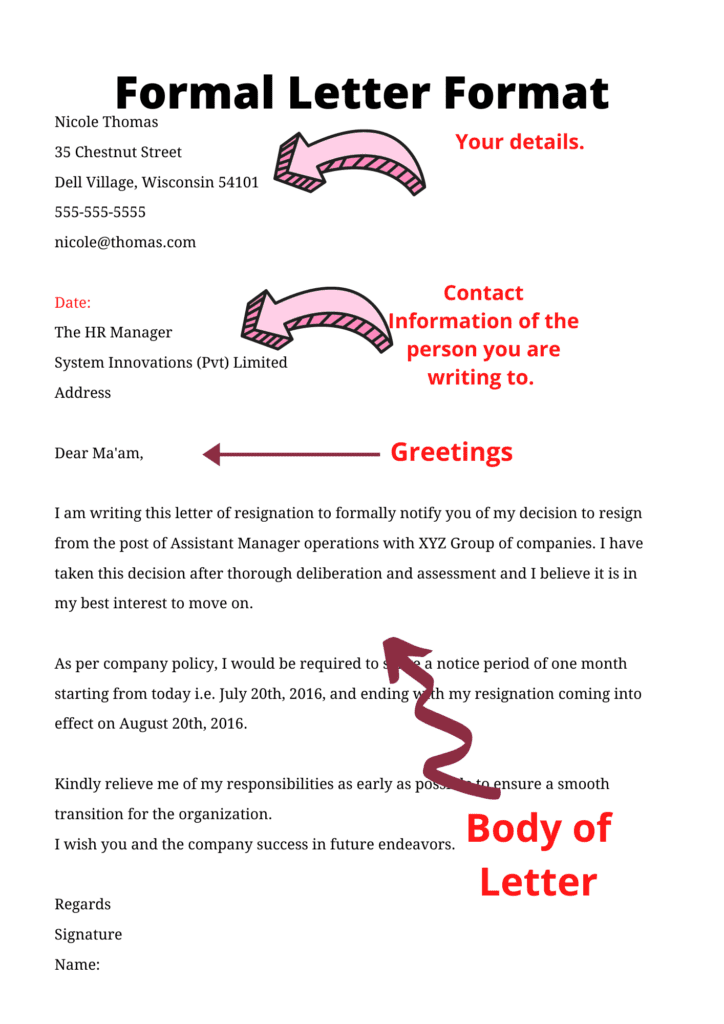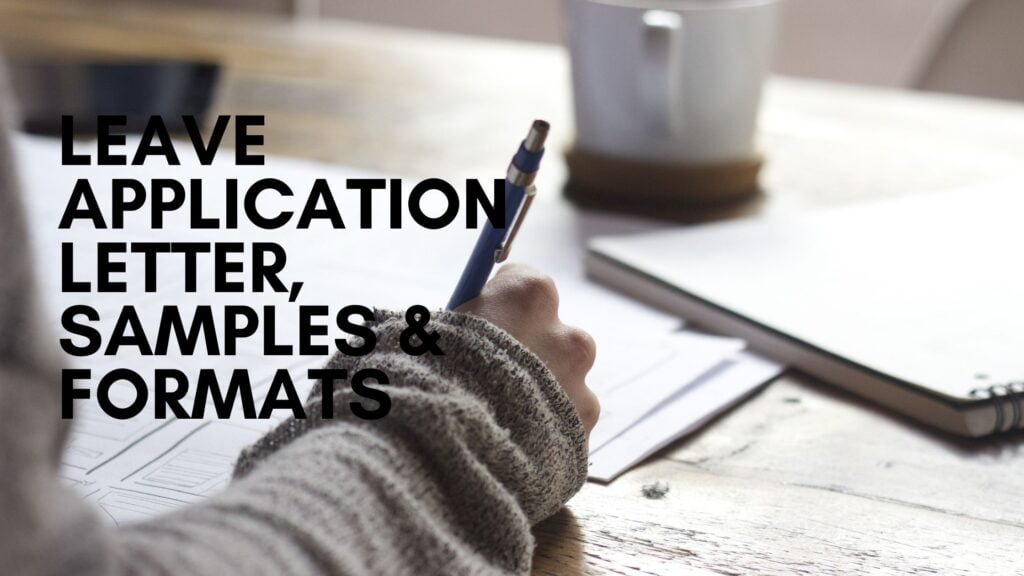Are you unsure about how to write a reference letter that truly showcases an individual’s skills and qualifications? Look no further! In this ultimate guide, we will walk you through the step-by-step process of crafting a compelling reference letter that leaves a lasting impression. Whether you’re writing a reference letter for a colleague, student, or employee, our expert tips and examples will help you deliver a powerful and effective recommendation. So, let’s dive in and learn how to write a reference letter that stands out from the crowd!
How to Write a Reference Letter
Writing a reference letter requires careful consideration and attention to detail. It’s essential to capture the individual’s strengths, achievements, and character traits accurately. Follow these guidelines to create a reference letter that leaves a positive impact:
1. Understand the Purpose of the Reference Letter
Before starting the writing process, it’s crucial to understand why you are writing the reference letter. Is it for a job application, academic program, or character reference? Each purpose may require a slightly different approach and focus. By clarifying the purpose, you can tailor your letter accordingly, highlighting the most relevant qualities of the individual.
2. Gather Relevant Information
To write an effective reference letter, gather all the necessary information about the person you’re recommending. This includes their resume, achievements, past projects, and any specific qualities or experiences that make them stand out. Gathering comprehensive information allows you to provide specific examples and anecdotes, making your reference letter more impactful.
3. Start with a Strong Opening
The beginning of your reference letter sets the tone for the entire document. Grab the reader’s attention with a strong opening that highlights your relationship with the individual and your qualifications to provide a recommendation. Consider including the duration of your association and the capacity in which you worked together.
4. Introduce the Individual and Their Connection
In the first paragraph, introduce the person you’re recommending and briefly explain your relationship or connection. Clearly state how you know the individual and for how long. This establishes your credibility and provides context for your recommendation.
5. Highlight Key Strengths and Qualities
In this section, focus on the individual’s key strengths, qualities, and achievements. Provide specific examples that illustrate their skills and accomplishments. Be sure to include both professional and personal attributes that make the individual well-suited for the opportunity they are seeking.
6. Provide Supporting Evidence
To make your reference letter more persuasive, back up your statements with supporting evidence. Include specific instances where the individual demonstrated their skills or achieved notable results. This could be through successful projects, positive feedback, or any other relevant accomplishments.
7. Structure the Letter Effectively
A well-structured reference letter is easier to read and comprehend. Consider organizing your letter into paragraphs, each focusing on a different aspect or quality of the individual. Use transitional phrases to smoothly transition between ideas and ensure a logical flow.
8. Be Honest and Genuine
When writing a reference letter, it’s crucial to be honest and genuine in your assessment. Avoid exaggerations or embellishments that may undermine your credibility. Instead, focus on providing an accurate and balanced portrayal of the individual’s abilities.
9. Tailor the Letter to the Recipient
Keep in mind who will be reading the reference letter and tailor your language and content accordingly. Adjust your tone and emphasis to align with the recipient’s expectations and requirements. If possible, research the organization or institution to understand their values and priorities.
10. Conclude with a Strong Recommendation
In the closing paragraph, reiterate your recommendation and summarize the individual’s key strengths. Express your confidence in their abilities and potential. End the letter on a positive note, leaving the reader with a lasting impression of the individual’s qualifications.
Writing a reference letter involves tailoring the content to suit the specific purpose and audience. Here are ten different types of reference letters you may encounter:
1. Employment Reference Letter
An employment reference letter is commonly used by employers to provide feedback on an employee’s performance, skills, and suitability for future employment opportunities. It may include details about the individual’s job responsibilities, accomplishments, and work ethic.
2. Academic Reference Letter
Academic reference letters are often requested by students or job applicants who are applying to educational institutions. Professors, teachers, or advisors typically write these letters and focus on the individual’s academic abilities, intellectual strengths, and potential for success in their chosen field.
3. Character Reference Letter
A character reference letter provides insight into an individual’s personal qualities, values, and integrity. It is commonly used for various purposes, such as rental applications, immigration processes, or court proceedings. The letter should highlight the person’s positive character traits and vouch for their reliability and trustworthiness.
4. Recommendation for Promotion Letter
A recommendation for promotion letter is written by a supervisor or manager to endorse an employee’s suitability for a higher position within the organization. The letter should highlight the individual’s skills, achievements, leadership abilities, and potential to excel in the new role.
5. Scholarship Reference Letter
Scholarship reference letters are often required by students applying for scholarships or grants. These letters are typically written by teachers, mentors, or community leaders who can attest to the student’s academic achievements, extracurricular involvement, and potential for success in their chosen field of study.
6. Volunteer Reference Letter
Volunteer reference letters are useful for individuals seeking volunteer positions or opportunities. They highlight the person’s dedication, reliability, and ability to work well with others. The letter may focus on the individual’s specific contributions, skills, and positive impact in their previous volunteer roles.
7. Business Reference Letter
A business reference letter is typically written by one business entity or professional to recommend another. It may be used when seeking new partnerships, collaborations, or when verifying the reputation and credibility of a company. The letter should outline the positive experiences, professionalism, and ethical standards of the recommended business.
8. Tenant Reference Letter
A tenant reference letter is often requested by landlords or property managers to assess the suitability of potential tenants. The letter is usually written by previous landlords or property owners and should highlight the tenant’s responsible behavior, timely rental payments, cleanliness, and respect for property.
9. Professional Reference Letter
Professional reference letters are commonly used during job applications to provide an employer with an understanding of an individual’s professional qualifications and work ethic. They are typically written by colleagues, supervisors, or business partners who can attest to the person’s skills, accomplishments, and contributions in a professional setting.
10. Graduate School Reference Letter
Graduate school reference letters are required for individuals applying to graduate programs. Professors, advisors, or mentors who are familiar with the applicant’s academic abilities, research skills, and potential for advanced study typically write these letters. They focus on the individual’s academic strengths, research experience, and intellectual capabilities.
Remember, regardless of the type of reference letter you’re writing, it’s essential to customize the content to best represent the individual and their qualifications for the intended purpose.
Frequently Asked Questions
Q1: How long should a reference letter be?
A1: While there is no strict word limit for reference letters, it’s generally recommended to keep them concise and focused. Aim for one to two pages, providing enough information to support your recommendation without overwhelming the reader.
Q2: Can I use a template for writing a reference letter?
A2: Templates can be helpful as a starting point, but it’s essential to personalize the content for each individual. Avoid using generic templates without customization, as they may come across as impersonal and less impactful.
Q3: Should I include any weaknesses or areas for improvement in the reference letter?
A3: It’s generally best to focus on the individual’s strengths and positive attributes in a reference letter. However, if you believe there are relevant areas for improvement, you can mention them briefly but constructively, emphasizing the person’s willingness to learn and grow.
Q4: Can I use bullet points in a reference letter?
A4: While bullet points can enhance readability, it’s generally better to use paragraphs and cohesive sentences in a reference letter. This allows you to provide a more comprehensive and thoughtful assessment of the individual’s qualifications.
Q5: Is it necessary to sign a reference letter?
A5: Yes, it’s customary to sign a reference letter to validate its authenticity. You can either print the letter and sign it manually or use an electronic signature if submitting the letter digitally.
Q6: How far in advance should I request a reference letter?
A6: It’s advisable to request a reference letter well in advance, preferably giving the person at least two to three weeks to write it. This ensures that they have enough time to craft a thoughtful and well-prepared recommendation.
Conclusion
Writing a reference letter may seem like a daunting task, but with the right approach and guidance, you can create a compelling and impactful recommendation. By understanding the purpose, gathering relevant information, and highlighting the individual’s strengths, you can craft a reference letter that truly stands out. Remember to be honest, genuine, and tailor your letter to the recipient. With these expert tips and examples at your disposal, you are well-equipped to write an exceptional reference letter that elevates the individual’s prospects. So go ahead and start crafting a recommendation that makes a lasting impression!



